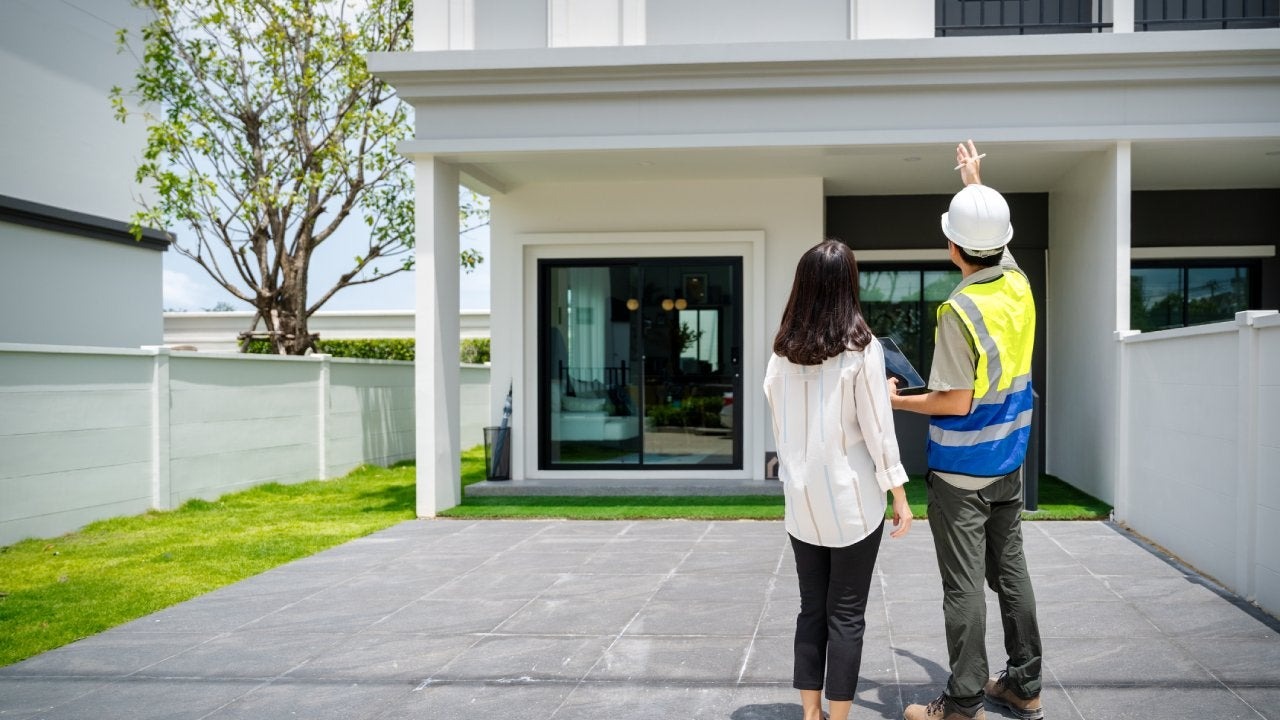
Hey there, property owners, investors, and real estate enthusiasts! Today, we’re diving into a topic that might not be the most glamorous, but it’s absolutely crucial for anyone looking to maximize their rental property’s value. That’s right, we’re talking about inspections – specifically, how they can make or break your property’s worth in the competitive rental market. So, grab a cup of coffee, get comfy, and let’s explore the world of Home Inspection Phoenix AZ and beyond!
Why Inspections Matter in the Rental Market
First things first, let’s talk about why inspections are such a big deal in the rental world. Sure, they might seem like just another box to tick off your to-do list, but trust me, they’re so much more than that. Here’s why:
- They ensure the safety and livability of your property
- They help you catch and fix issues before they become major problems
- They can significantly impact your property’s perceived value
- They play a crucial role in tenant satisfaction and retention
In short, inspections are like a health check-up for your property. And just like with our own health, prevention is always better (and cheaper) than cure!
Types of Inspections That Impact Property Value
Now that we know why inspections matter, let’s break down the different types you should be aware of:
1. Pre-Purchase Inspections
If you’re buying a property to rent out, this is your first line of defense. A thorough Home Inspection Phoenix AZ can:
- Uncover hidden issues that could cost you big bucks down the line
- Give you negotiating power if problems are found
- Help you budget for future repairs and upgrades
2. Move-In and Move-Out Inspections
These are crucial for protecting both you and your tenants. They:
- Document the property’s condition at the start and end of a tenancy
- Help prevent disputes over security deposits
- Identify any damage caused during the tenancy
3. Routine Inspections
Regular check-ups throughout the tenancy can:
- Catch minor issues before they become major problems
- Show tenants you care about maintaining the property
- Help you plan for future upgrades and improvements
4. Specialized Inspections
Depending on your property and location, you might need:
- Pest inspections
- Mold inspections
- Radon testing
- Asbestos inspections (for older properties)
These specialized checks can significantly impact your property’s value and rentability.
The Financial Impact of Regular Inspections
Alright, let’s talk money. How exactly do inspections impact your bottom line? Here are a few ways:
1. Preventing Costly Repairs
By catching issues early, you can avoid expensive emergency repairs. For example, fixing a small leak now is much cheaper than dealing with major water damage later.
2. Increasing Rental Income
A well-maintained property can command higher rents. Tenants are often willing to pay more for a home they know is regularly inspected and cared for.
3. Reducing Vacancy Periods
Properties in good condition tend to rent faster and have lower turnover rates. This means more consistent income for you.
4. Improving Property Value Over Time
Regular maintenance, informed by thorough inspections, can actually increase your property’s value over the years.
The Tenant Perspective: How Inspections Affect Rental Decisions
Now, let’s put ourselves in the tenants’ shoes for a moment. How do inspections influence their decision to rent (and stay in) a property?
- Safety and Peace of Mind: Knowing a property is regularly inspected gives tenants confidence in its safety and condition.
- Responsiveness: Regular inspections show that you’re an attentive landlord who cares about the property and tenant comfort.
- Transparency: Move-in inspections set clear expectations and can prevent future disputes.
- Quality Assurance: A history of thorough inspections suggests a well-maintained property, which is hugely attractive to potential tenants.
Remember, happy tenants are long-term tenants, and long-term tenants mean stable income for you!
The Legal Side: Inspections and Landlord Responsibilities
Let’s talk legal stuff for a moment (don’t worry, I’ll keep it brief and painless). Inspections aren’t just good practice; in many cases, they’re a legal requirement. Here’s what you need to know:
- Safety Regulations: Many areas require regular safety inspections, especially for things like smoke detectors and carbon monoxide alarms.
- Habitability Laws: As a landlord, you’re required to maintain a habitable living space. Regular inspections help ensure you’re meeting these obligations.
- Fair Housing Laws: Be sure your inspection practices are consistent and don’t discriminate against any protected groups.
- Privacy Rights: Remember, tenants have a right to privacy. Always provide proper notice before inspections.
Staying on top of these legal requirements not only protects you from potential lawsuits but also contributes to your property’s value by ensuring it’s always up to code.
Technology and Inspections: The Modern Landlord’s Toolkit
Welcome to the 21st century, where technology is changing the game in property inspections. Here are some cool tools that can make your life easier and your inspections more thorough:
- Digital Inspection Apps: These allow you to document inspections with photos, notes, and checklists, all in one place.
- 3D Imaging: Some Home Inspection Phoenix AZ services now offer 3D walkthroughs of properties, giving you a comprehensive view of the space.
- Thermal Imaging Cameras: These can detect hidden moisture issues, energy inefficiencies, and even pest infestations.
- Drones: For hard-to-reach areas like roofs, drones can provide a safe and thorough inspection option.
- Smart Home Devices: Things like smart smoke detectors and water leak sensors can provide real-time monitoring between inspections.
Embracing these technologies can make your inspections more efficient and effective, ultimately contributing to your property’s value.
The Environmental Angle: Green Inspections for Added Value
In today’s eco-conscious world, green features can significantly boost your property’s value. Consider incorporating these elements into your inspections:
- Energy Efficiency: Check for proper insulation, energy-efficient appliances, and well-sealed windows and doors.
- Water Conservation: Inspect for low-flow fixtures and check for leaks.
- Indoor Air Quality: Look for proper ventilation and use of low-VOC materials.
- Sustainable Materials: Note any use of recycled or sustainable building materials.
- Solar Potential: Assess the property’s potential for solar panel installation.
Highlighting these green features can attract environmentally conscious tenants and potentially command higher rents.
Navigating Inspections in Different Property Types
Not all properties are created equal, and neither are their inspection needs. Let’s break down some considerations for different types of rental properties:
Single-Family Homes
- Focus on both interior and exterior elements
- Pay special attention to major systems like HVAC, plumbing, and electrical
- Don’t forget about outdoor spaces like yards and patios
Multi-Family Units
- Inspect common areas thoroughly
- Check for sound insulation between units
- Ensure all safety systems (fire alarms, sprinklers) are up to code
Vacation Rentals
- More frequent inspections may be necessary due to high turnover
- Pay extra attention to amenities that attract vacationers (hot tubs, pool areas, etc.)
- Consider seasonal inspections to prepare for peak rental periods
Commercial Properties
- Focus on compliance with business safety codes
- Check accessibility features
- Inspect specialized equipment relevant to the business type
Tailoring your inspection approach to your specific property type ensures you’re addressing the most relevant value-impacting factors.
Communicating Inspection Results: Transparency Builds Trust
How you handle inspection results can significantly impact your relationship with tenants and, by extension, your property’s value. Here are some tips for effective communication:
- Be Prompt: Share results with tenants as soon as possible.
- Be Clear: Use simple language to explain any issues found.
- Be Proactive: Outline your plan for addressing any problems.
- Be Open: Encourage tenants to ask questions about the inspection.
- Be Appreciative: Thank tenants for their cooperation during the inspection process.
Good communication can turn the inspection process from a potential point of tension into an opportunity to build trust and demonstrate your commitment to maintaining a quality rental property.
Wrapping Up: The Long-Term Value of a Solid Inspection Strategy
Whew! We’ve covered a lot of ground, haven’t we? From understanding the different types of inspections to exploring how they impact your bottom line, we’ve seen that a solid inspection strategy is crucial for maximizing your rental property’s value.
Remember, inspections are more than just a checkbox on your landlord to-do list. They’re a powerful tool for:
- Maintaining and improving your property’s condition
- Ensuring tenant satisfaction and safety
- Protecting your investment over the long term
- Potentially increasing your rental income and property value
Whether you’re managing properties in Phoenix, AZ, or anywhere else, regular, thorough inspections are a key part of successful property management.
So, next time you’re tempted to skip that inspection or put it off for another day, remember the big picture. Your future self (and your bank account) will thank you for staying on top of those Home Inspection Phoenix AZ appointments and beyond!
Here’s to happy inspecting and healthy, valuable rental properties!
Also, read this: When to Test Your Well Water in Virginia: A Seasonal Guide








